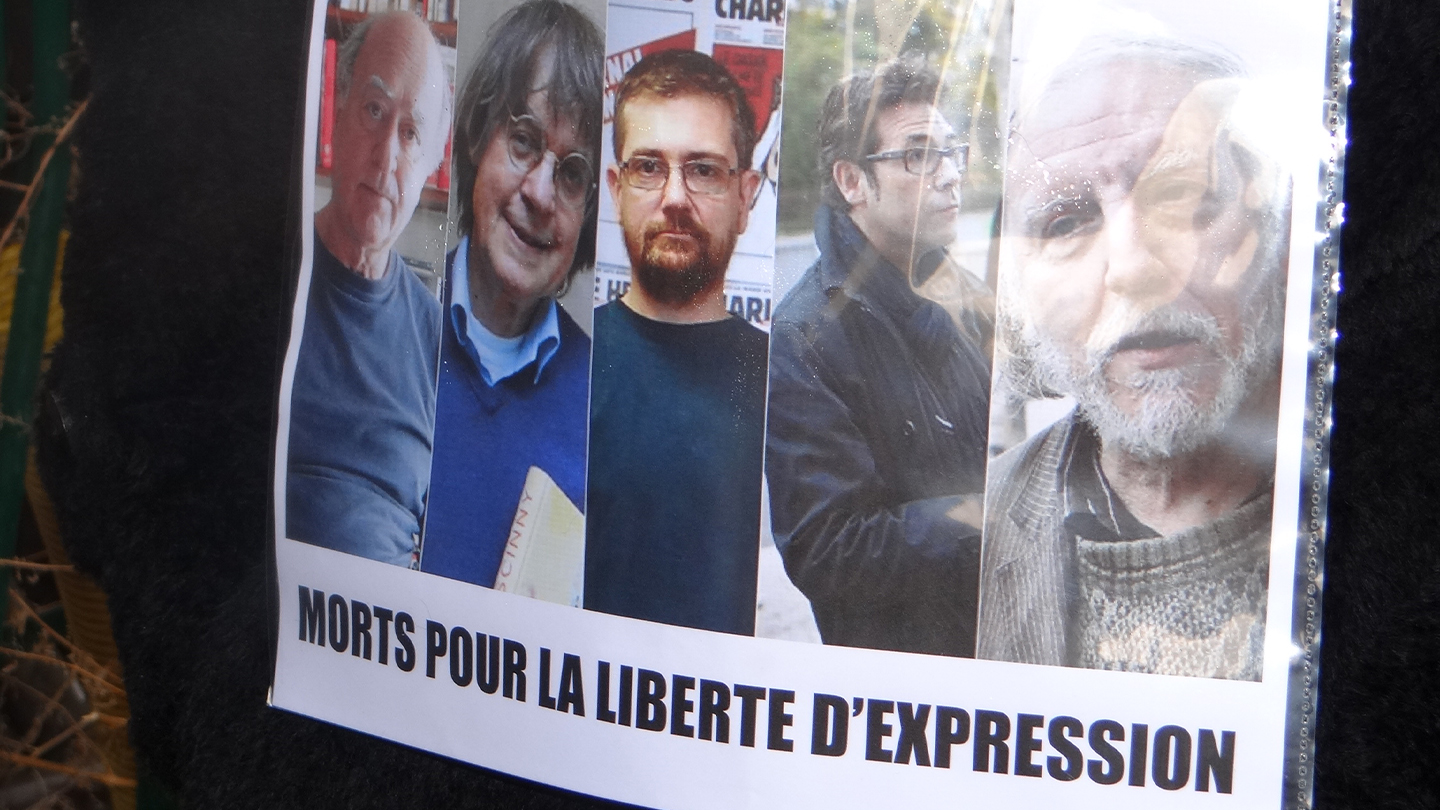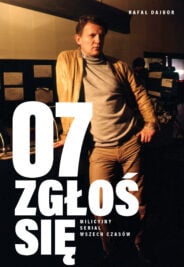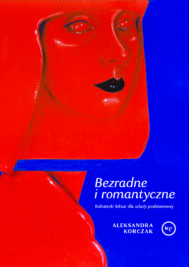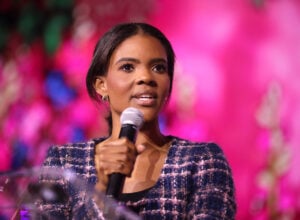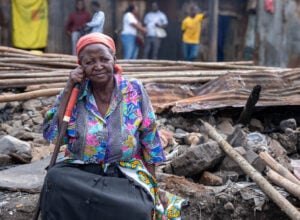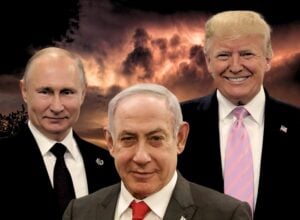Do historii Francji przeszedł nie tylko zamach terrorystyczny na kpiący z religii tygodnik, ale również ogólnonarodowa mobilizacja, która nastąpiła po nim. Powszechnie potępiono atak, nie tylko ze względu na ofiary ludzkie, ale też próbę podważenia zasady wolności słowa, tak ważnej zwłaszcza dla prasy satyrycznej. Przez kraj przetoczyły się wielomilionowe manifestacje pod hasłem obrony wartości republikańskich, jednak następna dekada miała pokazać ulotność tej zgody. Samo „Charlie Hebdo” także nie uwolniło się od krytyki, płynącej z różnych stron politycznego spektrum.
Niedługo po zamachu, gdy w najlepsze trwała kampania solidarnościowa pod hasłem „Je suis Charlie”, Jean-Marie Le Pen bez wahania zadeklarował, że on ani trochę nie utożsamia się z lewicowym i antyreligijnym pismem, być może mając w pamięci inicjowane przez nie petycje o delegalizację Frontu Narodowego. Z kolei skrajnie prawicowi chuligani w reakcji na ataki islamistów przystąpili do islamofobicznych napaści na muzułmanów i meczety, co zwiastowało pogłębienie podziałów wewnątrz różnorodnego społeczeństwa francuskiego.
Granice narodowej jedności
Napięcia religijne i islamistyczny ekstremizm, które stały za atakiem na redakcję, odcisnęły również piętno na próbach upamiętnienia ofiar w całym kraju. W niektórych szkołach muzułmańscy uczniowie nie chcieli uczestniczyć w minutach ciszy poświęconym autorom obrazoburczych grafik, a przeprowadzone kilka lat po zamachu badania opinii publicznej pokazały skalę problemu – co dziesiąty Francuz i zarazem co piąty francuski muzułmanin nie potępiał ataku na „Charlie Hebdo”. Im młodszy respondent, tym bardziej prawdopodobna była taka odpowiedź. To oczywiście wyraźna mniejszość, ale tendencja niepokoi i stawia pod znakiem zapytania skuteczność wysiłków na rzecz integracji mniejszości.
Błędem byłoby jednak sprowadzanie problemu do kwestii radykalizacji młodych muzułmanów. Według wspomnianego sondażu ich chrześcijańscy lub ateistyczni rówieśnicy także częściej niż starsze pokolenia krytykują „Charlie Hebdo”, zarzucając antyreligijnym grafikom przekraczanie granic przyzwoitości. Przykładowo poparcie dla publikowania karykatur Mahometa zadeklarowało ogółem 60 proc. Francuzów, ale wśród osób mających mniej niż 25 lat już tylko co trzeci respondent był tego samego zdania. Młodzi Francuzi wykazują za to więcej zrozumienia dla oburzonych żartami z proroka.
Odcinanie się od „Charlie Hebdo” to bowiem nie tylko domena Frontu Narodowego oraz islamistów, ale też postawa obecna u części lewicy, czyli w środowisku teoretycznie bliższym satyrycznemu pismu, które powstało kilkadziesiąt lat temu w kontrze do rządów prawicy i często za swój cel obierało nacjonalistów. Ponownie widać różnicę pokoleniową – o ile dla starszych prawo do wyśmiewania religii jest raczej oczywiste, niezależnie od przynależności politycznej, o tyle młodsi częściej widzą w karykaturach „Charlie Hebdo” islamofobię, rasizm lub po prostu „boomerstwo”. Zwłaszcza na lewicy, coraz bardziej wyczulonej na drwiny z mniejszości.
Amerykanizacja francuskiej polityki?
Nawet jeśli spory wokół tożsamości religijnych nie stanowią nowości nad Sekwaną, to w ostatnich latach ich znaczenie wzrosło i częściej rozpalają one opinię publiczną, co dobrze pokazują kontrowersje wokół „Charlie Hebdo”. Kością niezgody są tutaj na poziomie bezpośrednim obrazoburcze karykatury, ale w debacie na ich temat ścierają się odmienne interpretacje laicyzmu. Chociaż jako hasło urósł on we Francji do rangi świętości (niektórzy, dodając laïcité, uzupełniają rewolucyjną triadę „wolności, równości i braterstwa”), to jego praktyczna realizacja jest różnie pojmowana.
Kiedyś już pisałem o tym, jak „Charlie Hebdo”, kwestie religii i republikanizmu podzieliły lewicę. W klasycznym wydaniu to ostatnie pojęcie oznacza przywiązanie do Republiki „jednej i niepodzielnej”, traktującej wszystkich obywateli jednakowo, a więc ślepej chociażby na tożsamości etniczne czy religijne. Stąd państwo francuskie nie zbiera żadnych danych o wyznaniu swoich obywateli, nie uznaje też istnienia ras. Na popularności zyskuje jednak pogląd, że taka polityka utrwala dominację grup uprzywilejowanych, wymazuje mniejszości i ignoruje istnienie w społeczeństwie grup, które zasługują na uznanie odrębności w ramach wspólnoty narodowej oraz respektowanie ich zwyczajów (jak np. noszenie hidżabu).
We Francji to podejście bywa nazywane (zwykle przez krytyków) komunitaryzmem, rozumianym jako postawa sprzeczna z uniwersalistycznymi wartościami republikańskimi i oskarżana o sprzyjanie islamistycznemu „separatyzmowi”, ponieważ ma ona prowadzić do budowania kontrspołeczeństw według podziałów rasowych, etnicznych czy religijnych. Dla wielu komentatorów znad Sekwany stanowi to przejaw importu idei oraz sposobów prowadzenia polityki z USA, zagrażając tradycyjnemu republikanizmowi w wydaniu francuskim.
W tym kontekście do roli przeciwników amerykanizacji często pretenduje konserwatywna lub nacjonalistyczna prawica – co jest dość ironiczne, biorąc pod uwagę, jak bardzo kopiuje ona retorykę i strategię swoich amerykańskich odpowiedników – występując przeciw ruchowi „woke” czy „islamolewicy”. Całkiem nieźle działa to jako narzędzie polityczne, ale niezbyt pomaga w próbach poskromienia ideologii stojącej za atakiem na „Charlie Hebdo”.
Jak (nie) walczyć z islamizmem
Za sprawą zamachów z 2015 roku terroryzm stał się dla Francji wrogiem numer 1, a państwo podjęło wzmożone wysiłki na rzecz powstrzymania ekstremizmu religijnego. Miało to wymiar wewnętrzny, ale i zewnętrzny. Francja tradycyjnie prowadziła aktywną politykę militarną w Afryce, do której celów dołączyła walka z dżihadystami – jeszcze przed zamachami w Paryżu rozpoczęła się interwencja w Mali, a operacje wojskowe w Afryce kontynuowano w następnych latach. Atak na „Charlie Hebdo” trudno więc uznać za punkt zwrotny we francuskiej wojnie z terroryzmem. Na pewno nie miał takiego znaczenia jak 11 września dla USA, o ile w ogóle można mówić o zmianie polityki militarnej Francji pod jego wpływem. W trwającej dekadzie zaangażowanie wojskowe raczej wygaszano, lecz nie przez brak chęci, a wątpliwą skuteczność i rosnącą niechęć afrykańskich rządów do dawnego kolonizatora.
Podobne zastrzeżenia można mieć, jeśli chodzi o sukces walki z „islamskim separatyzmem”, szumnie zapowiadanej przez prezydenta Macrona w kontekście śmierci Samuela Paty’ego – nauczyciel został zamordowany po pokazaniu uczniom karykatur z „Charlie Hebdo”. Oczywiście o efektach długofalowych trudno mówić, jednak dorobek liberalnego prezydenta już teraz jest dyskusyjny. Obozowi rządzącemu zarzuca się, że wiele mówi o laicyzmie, ale używa go tylko w roli pałki na muzułmanów, jednocześnie łamiąc sekularne zasady w kontaktach z Kościołem katolickim czy organizacjami żydowskimi. Nie pomaga to w przekonaniu tych pierwszych do zaufania Republice, która za sprawą prawicowego zwrotu coraz częściej traktuje potomków imigrantów jako problem i przedmiot działań, a nie współobywateli uczestniczących w życiu publicznym.
Być może po części dlatego aż trzech na czterech młodych muzułmanów stawia wartości religijne ponad republikańskimi, co jest wskaźnikiem aż trzykrotnie wyższym niż w przypadku ich rodziców. Mniej mówi się o fakcie, że taka postawa zyskuje na popularności również u młodych chrześcijan, co sugerowałoby nie tylko klęskę w starciu z islamizmem, ale zarazem ogólne osłabienie uniwersalistycznego republikanizmu wśród pokolenia Francuzów wchodzącego właśnie w dorosłość.
W takich okolicznościach dochodzi do upamiętnienia ofiar ataku na „Charlie Hebdo”, a sam tygodnik wydał numer specjalny o większym nakładzie. Terrorystom nie udało się uciszyć satyrycznego pisma, ale dekadę po zamachu i późniejszym pokazie jedności narodowej to ostatnie wydaje się odległym snem, podczas gdy konflikty o podłożu (częściowo) religijnym dalej trapią Republikę. W najbliższej przyszłości się to nie zmieni.

 Wspieraj
Wspieraj 

 Wspieraj
Wspieraj  Wydawnictwo
Wydawnictwo 
 Zaloguj się
Zaloguj się 
